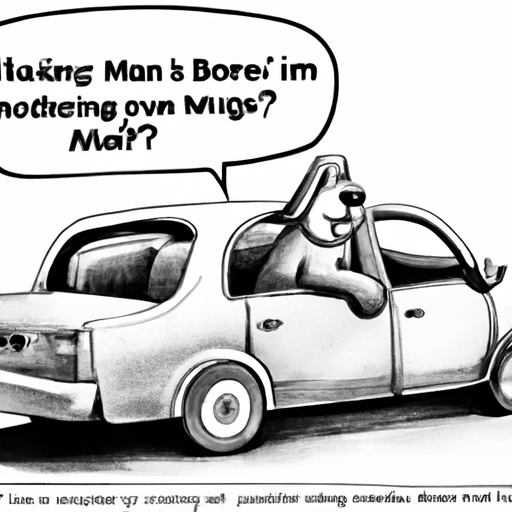Understanding Your Dog’s Distress
Your dog’s whining in the car can be a troubling sign, especially when you see them as part of your family and their comfort matters to you. As a caregiver, your instinct may be to soothe them immediately. However, it’s essential to understand the root cause of their distress. Dogs may whine in the car due to a variety of reasons:
- Fear or Anxiety: Your dog may associate the car with a stressful experience such as a visit to the vet.
- Motion Sickness: Just like humans, dogs can also get car sick.
- Excitement: Sometimes, the whining could simply be an expression of excitement or anticipation for a trip to the park.
Deciphering the Whining
The key to addressing your dog’s whining lies in accurately deciphering what their whines mean. Here are some pointers to help you understand your dog’s distress signals:
- Short, high-pitched whines: These usually indicate fear or pain.
- Long, drawn-out whines: These could signify boredom or a need for attention.
- Varying pitch whines: These are typically a sign of excitement or anticipation.
Remedies for a Restless Pooch
Now that you’ve identified the cause behind your dog’s whining, it’s time to explore some remedies. Remember, your aim is to create a positive association with car rides. Here are some strategies:
- Create a Comfort Zone: Make the car a comfortable place for your dog by bringing in their favorite blanket or toys.
- Positive Reinforcement: Reward your dog for good behavior in the car with treats or praises.
- Gradual Exposure: Start with short rides and gradually increase the duration.
When to Seek Professional Help
If despite your best efforts, your dog continues to whine or show signs of distress, it might be time to seek professional help. Professional dog trainers or animal behaviorists can provide targeted strategies based on your dog’s specific needs.
Table: When to Seek Professional Help
| Signs to Watch For | Recommended Action |
|---|---|
| Persistent, high-pitched whining | Consult a vet to rule out any medical issues |
| Aggression or excessive fear | Seek help from a professional dog trainer or animal behaviorist |
| Signs of motion sickness like drooling, inactivity, or vomiting | Consult a vet for potential medication |
FAQs
Q: Will my dog always whine in the car?
A: Not necessarily. With proper training and positive experiences, your dog can learn to enjoy car rides.
Q: Can medication help my dog’s car sickness?
A: Yes, your vet can prescribe medication to help with motion sickness.
Q: Is it okay to let my dog ride in the front seat?
A: It’s safer for your dog to ride in the back seat, ideally in a crate or harness for their safety.
Remember, as a caregiver, your patience and understanding are key to helping your furry friend overcome their fear of car rides. In time, they’ll come to enjoy these trips just as much as you do.



